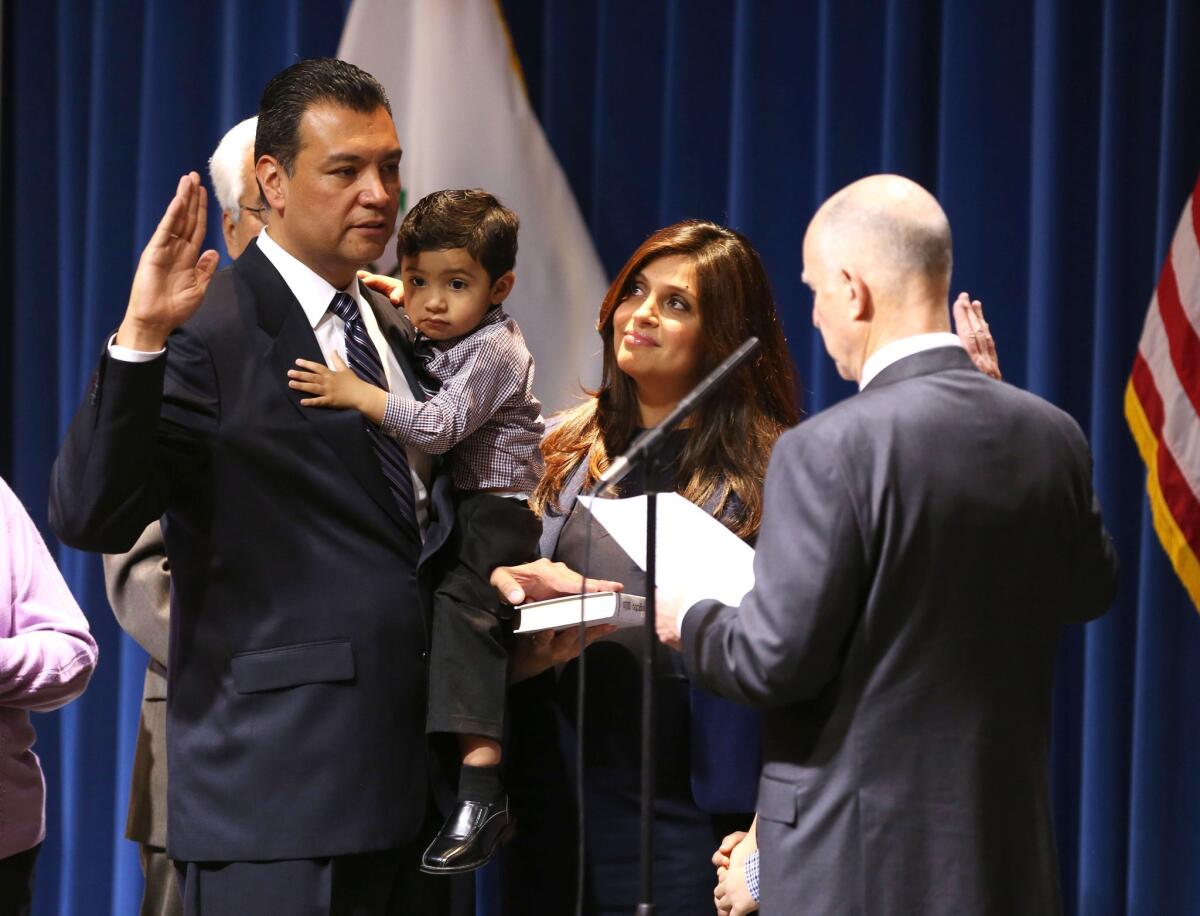Editorial: California, drive carefully toward ‘motor voter’ law

- Share via
In his first major act since taking office, Secretary of State Alex Padilla was smart to focus on California’s chronic voting problem. Turnout in the last statewide election was a mere 42% — a new low. Without serious intervention it seems likely to continue to decline.
So last week Padilla unveiled legislation, carried by Assemblywoman Lorena Gonzalez (D-San Diego), under which anyone applying for a new California driver’s license, or renewing an old one, would be automatically registered to vote. This Oregon-style “motor voter” law would not require any action on the part of the applicant, although it would include an opt-out provision.
Such a change would dramatically increase the number of Californians on the voter rolls — and might drive up turnout enormously. Nearly 5.8 million currently licensed drivers could be signed up under the new law when they renew their licenses. In other countries where the government automatically registers voters, citizens participate in elections at a much higher rate than in the United States.
But there are some concerns about individual privacy and potential voter fraud that the Legislature must consider as this proposal moves forward.
Padilla’s bill would rely on the Department of Motor Vehicles to transmit data about eligible voters to the secretary of state’s office. Yet voter information and driver information are not treated the same way in California for privacy purposes. After actress Rebecca Schaeffer was shot to death at the door of her West Hollywood apartment in 1989 by an obsessed fan who obtained her address from DMV records, public access to DMV information was severely tightened. Although there are also restrictions on obtaining addresses and other personal information in the state voter rolls, they are looser than those on the DMV. It is important that voters’ personal information not become public without their acquiescence.
The opt-out provision in Padilla’s bill would help. Voters would receive a postcard in the mail allowing them to opt out of being registered. That’s good, although a single postcard that could easily be overlooked or tossed out may not be sufficient notification. Padilla’s office also says that peace officers, prison guards, judges, victims of domestic violence — all of whom might have good reasons not to want their addresses made public — would have their personal information kept confidential.
The bill must also make clear that the DMV may not register people to vote who are living in the country illegally, even if they obtain California driver’s licenses under the new law that went into effect this year.
It’s important to remember that registration won’t address many of the deeper reasons people don’t vote — disconnection with issues, disgust with the candidates or disillusionment with the political process. But if automatic registration can have some impact on the ever-sinking voting turnout rates, it’s well worth considering.
Follow the Opinion section on Twitter @latimesopinion and Facebook
More to Read
A cure for the common opinion
Get thought-provoking perspectives with our weekly newsletter.
You may occasionally receive promotional content from the Los Angeles Times.










